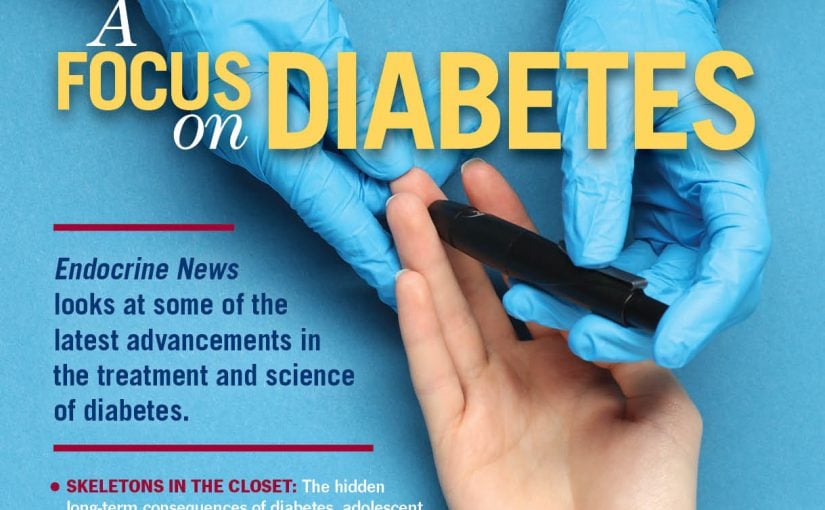Federal Funding for SDP, NIH in Jeopardy
As the February issue of Endocrine News went to press, the government had only days to fund the Special Diabetes Program (SDP) and the National Institutes of Health (NIH) before funding expired.
It was expected that Congress would pass another short-term funding bill that would fund these programs at current levels through March 8. The Endocrine Society is working to prevent expiration of SDP and a federal government shut down and encourages its U.S.-based members to join our online campaigns (visit www.endocrine.org/take-action) to help us advocate.
For the latest information, please visit www.endocrine.org/advocacy-in-action.
Endocrine Society Contributes to Women’s Health Research Initiatives
As a leader in the field of women’s health research, the Endocrine Society is currently engaged in high-level strategies to identify opportunities for the federal government to drive innovation and address research gaps to improve women’s health.
On November 13 President Biden announced the first-ever White House Initiative on Women’s Health Research; the initiative will deliver recommendations that the administration can take to improve the conduct of women’s health research, set priority areas for investments, and explore new public-private partnerships to drive innovation. Following a review of the mission and goals of the initiative, our members developed a detailed comment letter sent to the White House Gender Policy Council identifying priority research areas in endocrine science as well as policy opportunities to improve the conduct of research to drive solutions more effectively to women’s health issues. We are encouraged that the initiative has already mentioned opportunities consistent with our suggestions, such as research on menopause and cardiovascular disease in women.
As a leader in the field of women’s health research, the Endocrine Society is currently engaged in high-level strategies to identify opportunities for the federal government to drive innovation and address research gaps to improve women’s health.
Meanwhile, the National Academies of Sciences, Engineering, and Medicine (NASEM) have convened a committee to “develop a framework for addressing the persistent gaps that remain in the knowledge of women’s health research across all NIH Institutes and Centers (ICs).” While focused on research priorities, the consensus committee will also evaluate workforce and training issues, along with extra- and intramural processes and systems that could be improved to “optimize women’s health research.” We have also shared our priorities with the Committee in a letter, and as this article was written we have been invited to deliver public comments at a future meeting of the Committee.
We strongly believe including endocrine expertise is fundamental to the success of these important projects and look forward to partnering with the Biden Administration and NASEM to advance women’s health through research. We encourage members to examine our comment letters, which are posted on the Society’s advocacy webpage. You are also welcome to share suggestions to further inform our engagement on these projects via e-mail to Joe Laakso, PhD, Director of Science Policy at: [email protected].
Society Webinar Provides Information to Help Endocrinologists Increase Medicare Reimbursement
On January 29, the Endocrine Society hosted a webinar to educate members on a new complex care reimbursement code that endocrinologists can use in their practices.
On January 1, 2024, the Centers for Medicare and Medicaid Services (CMS) finalized the implementation of G2211, a complex add-on code that can be used by endocrinologists to pay for complex care services delivered by a provider with an ongoing relationship with the patient. Practicing endocrinologists are eligible to bill using this code for some of their patients. During the webinar, participants had the opportunity to learn about this new code and ask questions about how it can be implemented at their practice.
The Endocrine Society strongly supported the creation of this code which has resulted in increased physician reimbursement for endocrinologists. If you were unable to attend the webinar, a recording is available at the Center for Learning on the Endocrine Society’s website.

